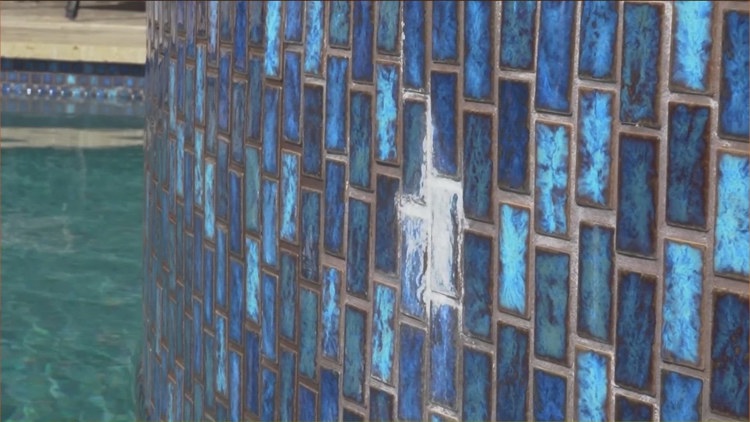Understanding Concrete Cancer and Its Impact on Central Texas Pools

Arjun Okkath’s expression said it all, “It’s just upsetting to see this. It’s totally devastating.”
AUSTIN, Texas — It has become an all-too-common defect, potentially impacting thousands of pools across Central Texas.
The KVUE Defenders first uncovered the issue of “concrete cancer” in pools back in April. Since then, we’ve seen how it has wreaked havoc on homeowners, resulted in numerous lawsuits, and pushed many pool builders and concrete companies out of business. Now, this defect is also affecting the real estate market.
Experts warn that pools constructed between 2017 and 2023 are at risk of Alkali-silica reaction (ASR), commonly referred to as “concrete cancer.” This condition can render a pool unusable and irreparable due to a flawed concrete mix.
Concrete cancer may take months or even years to manifest, with cracks being the initial warning signs. Many individuals have unknowingly purchased homes with affected pools, while local realtors claim they have received no guidance from industry organizations or regulators.
Arjun Okkath from Round Rock shared his experience, pointing to the cracks in his pool and expressing his dismay at the situation. “It’s totally unusable right now,” Okkath explained. “We got this house just because it had a pool.”
Okkath’s pool was completed in December of 2021, merely months before his family moved in. The discovery of concrete cancer has now left him facing the daunting prospect of demolishing and rebuilding the pool at a cost exceeding $150,000.
Okkath emphasized the lack of transparency from the previous owner, realtor, and inspection company regarding the pool’s condition. Despite seeking legal recourse, he faced challenges after a concrete supplier for the pool builder filed for bankruptcy.
With numerous lawsuits filed against pool construction companies and concrete contractors in Central Texas, the issue has expanded to impact both homebuyers and sellers. Realtors like Kimberly Mills have been at the forefront of dealing with the repercussions, advocating for greater awareness and disclosure in real estate transactions.
What exactly is concrete cancer?
Alkali-silica reaction, or ASR, commonly known as “concrete cancer,” occurs when concrete lacks the proper mix and fly ash. Water causes the concrete to expand and crack, often necessitating complete demolition and reconstruction at a significantly higher cost.
Fly ash, a byproduct of coal combustion, is in short supply due to the shift away from coal and exacerbated by the pandemic. Pools built between 2017 and 2023 are particularly at risk of developing this defect.
Concrete cancer’s impacts on home value
Mills noted that homes with ASR-affected pools experience a decline in value post-removal and landscaping. Families are left to bear the financial burden of pool removal, leading to significant losses in property value.
Okkath, who purchased his home for a million dollars, now faces challenges in selling the property due to market changes and the high cost of pool removal. The situation has led him to reassess the property’s value and future prospects.
What are pool companies doing?
Leading pool builder Cody Pools has taken steps to address the issue, notifying original customers potentially affected by concrete cancer and setting up a dedicated response team. The company is offering support for testing costs, remediation, and rebuild through insurance claims, although the process can be time-consuming. Cody Pools has also terminated agreements with shotcrete providers implicated in the issue.
As Central Texas grapples with the widespread impact of concrete cancer in pools, homeowners, real estate agents, and industry stakeholders are urged to remain vigilant and proactive in addressing this critical issue.

